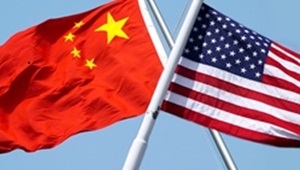China and the United States have started unwinding their tariff war with both countries announcing exemptions and delays in scheduled tariff hikes as the trade war continued to hit both economies.

China on Wednesday announced its first batch of tariff exemptions for 16 types of US products while US President Donald Trump welcomed China's decision to exempt some US goods from its tariffs and announced a short delay to scheduled tariff hikes on billions worth of Chinese goods.
The first batch of tariff exemptions will apply to 16 types of US products, including some anti-cancer drugs and lubricants, as well as animal feed ingredients whey and fish meal, according to a ministry of finance statement.
Speaking to reports in the White House, Trump said China's decision to exempt some US goods was a "big move" by Beijing and a positive gesture before trade negotiators from both countries meet in Washington.
"They made a couple of moves ... that were pretty good," Trump said at an unrelated event. "I think it was a gesture, okay? But it was a big move."
In a Twitter post Trump said the United States had agreed to delay increasing tariffs on $250 billion worth of Chinese imports from 1 October to 15 October "as a gesture of good will."
The tariffs were set to increase to 30 per cent from 25 per cent on the goods.
On the de-escalation of trade tensions that roiled markets for over a year, Trump said, "I deal with them and I know them and I like them," adding, "I hope we can do something."
The concessions come days ahead of a planned meeting of trade representatives of the two countries aimed at defusing the escalating trade war between the world's two largest economies.
Chinese Vice Premier Liu He, US Trade Representative Robert Lighthizer and Treasury Secretary Steven Mnuchin are expected to meet in early October in the US capital, but key officials are tamping down expectations for a major accord.
The gestures may ease tensions ahead of the negotiations, but some analysts don't see it as a signal that both sides are readying a deal.
However, there are still many uncertainties in the coming trade talks. Beijing and Washington were close to a deal last spring but US officials said China backed away from an agreed text over a reluctance to change laws to address US complaints.



















